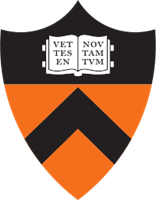What do they do?
Produce financial and market intelligence by querying data repositories and generating periodic reports. Devise methods for identifying data patterns and trends in available information sources.
Also known as:
Business Intelligence Analyst, Competitive Intelligence Analyst, Data Analyst, Market Intelligence Analyst, Market Intelligence Consultant, Strategic Business and Technology Intelligence Consultant, Strategist
-
6.8%
Change
Ranks #33 in job growth rate360Job Openings
Ranks #14 in net job growth
Looking for colleges that offer a specific major? Use the College Match Tool to find your best-matched schools and discover your estimated Net Price!
- Bachelor's degree (39%)
- Master's degree (36%)
- Doctorate or Professional Degree (12%)
- Some college, no degree (6%)
- Associate's degree (3%)
- High school diploma equivalent (3%)
- Less than high school diploma (<1%)
Most Popular Majors that prepare Business Intelligence Analysts
-
#1
-
Degrees Granted
40,331
-
Female Students
8,540
-
Male Students
31,791
-
Median Starting Salary
$62,633
-
-
#2
-
Degrees Granted
17,028
-
Female Students
7,052
-
Male Students
9,976
-
Median Starting Salary
$54,000
-
-
#3
-
Degrees Granted
14,079
-
Female Students
5,374
-
Male Students
8,705
-
Median Starting Salary
$53,900
-
-
#4
-
Degrees Granted
13,110
-
Female Students
2,991
-
Male Students
10,119
-
Median Starting Salary
$54,033
-
-
#5
-
Degrees Granted
4,926
-
Female Students
1,928
-
Male Students
2,998
-
Median Starting Salary
$57,200
-
People in this career often have these skills:
- Reading Comprehension - Understanding written sentences and paragraphs in work-related documents.
- Critical Thinking - Using logic and reasoning to identify the strengths and weaknesses of alternative solutions, conclusions, or approaches to problems.
- Active Listening - Giving full attention to what other people are saying, taking time to understand the points being made, asking questions as appropriate, and not interrupting at inappropriate times.
- Speaking - Talking to others to convey information effectively.
- Writing - Communicating effectively in writing as appropriate for the needs of the audience.
- Active Learning - Understanding the implications of new information for both current and future problem-solving and decision-making.
- Judgment and Decision Making - Considering the relative costs and benefits of potential actions to choose the most appropriate one.
- Complex Problem Solving - Identifying complex problems and reviewing related information to develop and evaluate options and implement solutions.
- Mathematics - Using mathematics to solve problems.
- Systems Analysis - Determining how a system should work and how changes in conditions, operations, and the environment will affect outcomes.
People in this career often know a lot about:
- English Language - Knowledge of the structure and content of the English language including the meaning and spelling of words, rules of composition, and grammar.
- Mathematics - Knowledge of arithmetic, algebra, geometry, calculus, statistics, and their applications.
People in this career often have talent in:
- Written Comprehension - The ability to read and understand information and ideas presented in writing.
- Written Expression - The ability to communicate information and ideas in writing so others will understand.
- Oral Comprehension - The ability to listen to and understand information and ideas presented through spoken words and sentences.
- Oral Expression - The ability to communicate information and ideas in speaking so others will understand.
- Inductive Reasoning - The ability to combine pieces of information to form general rules or conclusions (includes finding a relationship among seemingly unrelated events).
- Deductive Reasoning - The ability to apply general rules to specific problems to produce answers that make sense.
- Category Flexibility - The ability to generate or use different sets of rules for combining or grouping things in different ways.
- Information Ordering - The ability to arrange things or actions in a certain order or pattern according to a specific rule or set of rules (e.g., patterns of numbers, letters, words, pictures, mathematical operations).
- Speech Clarity - The ability to speak clearly so others can understand you.
- Speech Recognition - The ability to identify and understand the speech of another person.
- Fluency of Ideas - The ability to come up with a number of ideas about a topic (the number of ideas is important, not their quality, correctness, or creativity).
- Problem Sensitivity - The ability to tell when something is wrong or is likely to go wrong. It does not involve solving the problem, only recognizing that there is a problem.
- Mathematical Reasoning - The ability to choose the right mathematical methods or formulas to solve a problem.
People in this career often do these activities:
- Prepare analytical reports.
- Analyze market or customer related data.
- Develop models of information or communications systems.
- Create databases to store electronic data.
- Develop information communication procedures.
- Update computer database information.
- Report information to managers or other personnel.
- Provide technical support for software maintenance or use.
- Update knowledge about emerging industry or technology trends.
- Document technical specifications or requirements.
- Collect data about customer needs.
- Document operational procedures.
This page includes data from:

 Occupation statistics: USDOL U.S. Bureau of Labor Statistics Occupational Employment Statistics
Occupation statistics: USDOL U.S. Bureau of Labor Statistics Occupational Employment Statistics








